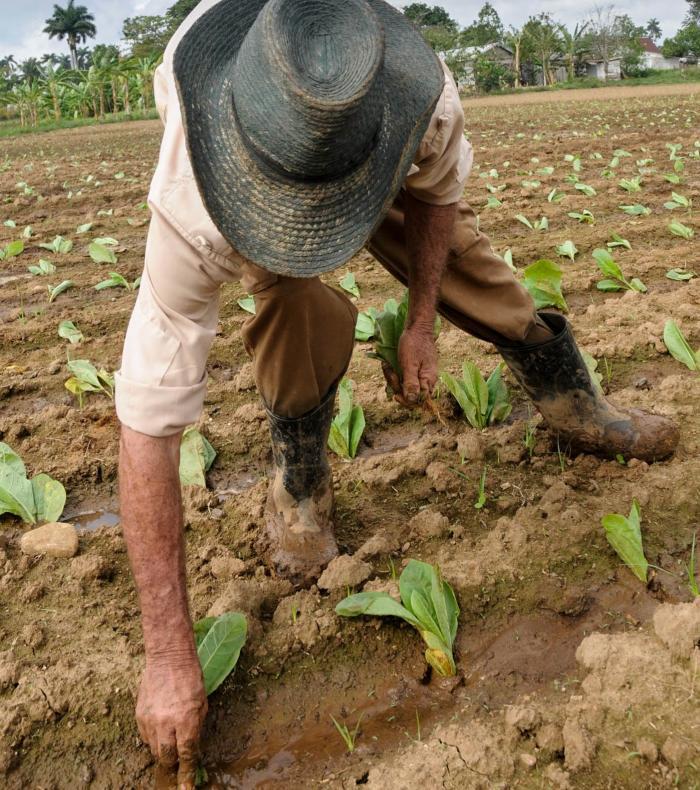
It is difficult for someone born in the countryside, with as many roots in the furrow as a yucca or corn plantation, not to feel every May 17, through memory and gratitude, that sensation of wet soil, freshly turned by the plow, or that smell of cow dung that flowed from the cowshed near the farmhouse.
Impossible to escape, on a day like today, from hundreds of images, piled up for decades, of peasants cutting banana stalks and arranging them on a cart for later transport and sale, in the community or in the town.
To those who for 65 years -since the Agrarian Reform Law was signed-, or 63 -when the National Association of Small Farmers (ANAP) was born-, have brought to their farms or plots the productive juice that thousands of Cuban families are so grateful for, the reverence of an entire people should reach them right here.
Thinking precisely of them, of the shame and unconditional support that has always characterized them, I look at the small photo that my photographic lens captured a few days ago. It shows an old woman standing next to one of those carts that sell (resell) sweet potatoes, cassava, pumpkin, onion, pineapple..., in short, agricultural food.
None of these products became the inspiration for the image. It was the silhouette of the old woman, counting and calculating the money to determine, from that varied offer, what she could actually buy.
If small squares, state agricultural markets and other similar spaces were, not crowded, but at least well-stocked and with a certain variety, as the guajiro (a native of the Guajira region) says, "another rooster would sing".
That is why it is necessary to understand, once and for all, how necessary and strategic it is for both the state structures and the cooperative and peasant sectors to put their boots in the ground and promote a progressive and sustained ascent towards productive, distribution and consumption levels, which cannot be postponed in the current situation for the Cuban family and society.
There are arms, intelligence and industriousness in many noble peasants and farmers who do not decline machete and hoe in the face of everything adverse that crosses them like a stick in a canyon.















